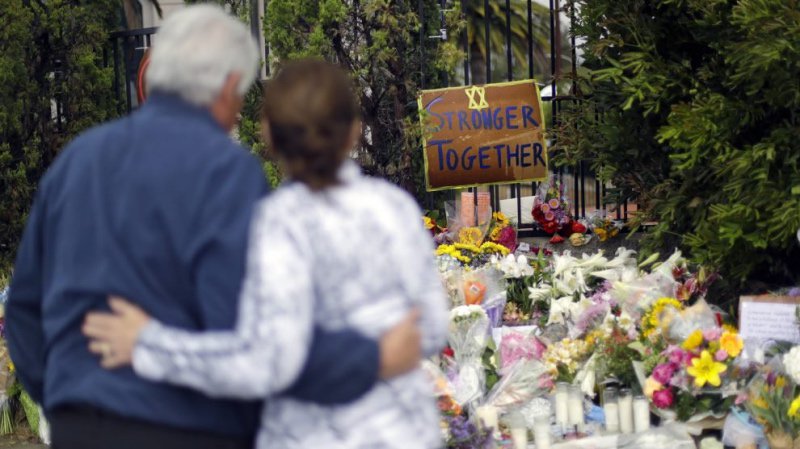Last month, on the last day of Passover, a man armed with an AR-15-style rifle stormed into the Chabad of Poway synagogue in suburban San Diego and killed one worshipper and left three others injured. Later, the gunman reportedly confessed to burning a nearby mosque as well.
The attack came exactly six months to the day after 11 worshippers were killed at a Pittsburgh synagogue in the deadliest anti-Semitic attack America has ever seen.
But according to religious leaders, virtually no faith community has been spared violence – firebombings, mass shootings and more – over the past few years.
Poway and Pittsburgh were preceded by the 2017 attack on a church in Sutherland Springs, Texas, where 26 people were killed. The same year in Quebec City, Canada, six worshippers were killed at a mosque. In 2015, in Charleston, South Carolina, nine people were left dead at a black church. Six more were killed at a Sikh gurdwara in 2012 in Oak Creek, Wisconsin. And far too many more.
In response, faith leaders across the country are putting their heads together to help protect their congregations – and to do so, they’re increasingly crossing denominational lines.
“We’re a community, whether we’re one faith or another. They might be targeting you today, but they might turn around and go to yours tomorrow. So we need to collaborate and exchange notes so we can share solutions.”
– said Andy Jabbour, managing director of the Faith-Based Information Sharing and Analysis Organization.
“It doesn’t matter what you call God or a higher power,” said Andy Jabbour, managing director of the Faith-Based Information Sharing and Analysis Organization in Leesburg, Virginia. “We all have a right to come together and worship, so we have to protect that right for all of us.”
Jabbour co-founded the nonprofit last year with the aim of forming a network of US houses of worship and faith-based charities to equip them against security threats, from arson and active shooter situations to hacked emails.
Read the article in Sight Magazine.

